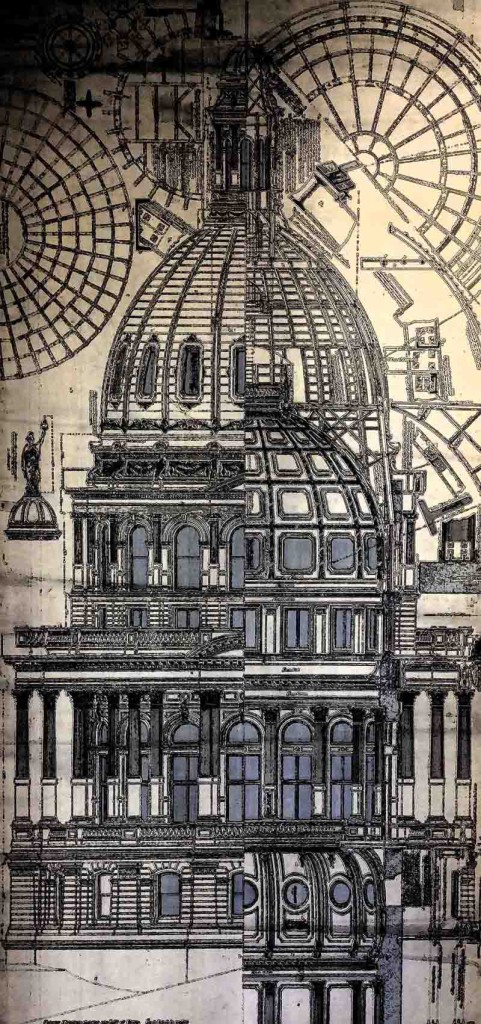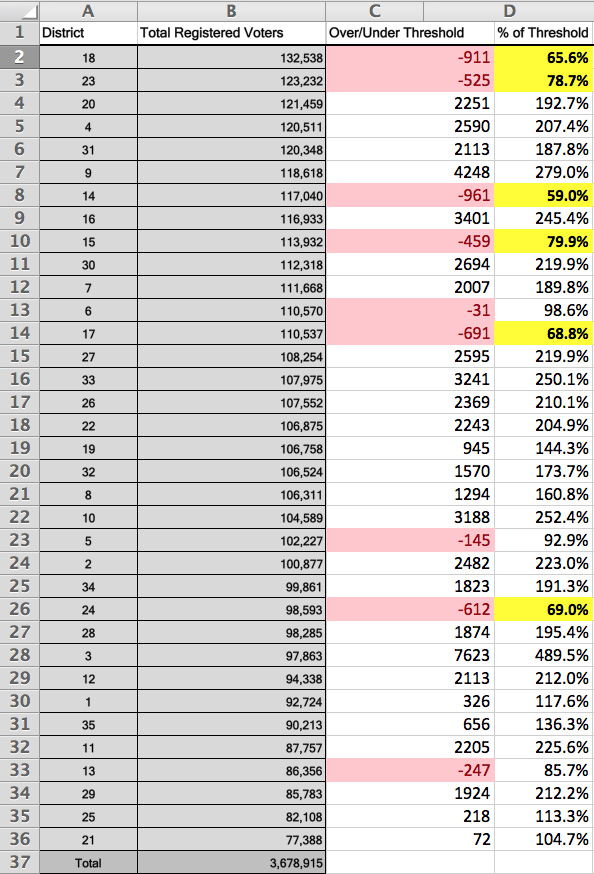
Does Amendment 71 fail even by its own standards?
A new analysis by the Independence Institute says that it does, in at least four State Senate districts, and possibly as many as six.
The proposed amendment to the Colorado State Constitution would require that future Constitutional Amendments gather petition signatures from 2 percent of the registered voters in each of the state’s 35 State Senate districts.
Proponents of the measure have been quite vocal in their assertion that they themselves lived up to that requirement. “You can count them yourself,” said former State Senator Greg Brophy, when asked about it.
The Independence Institute did just that, for the 5 percent sample of signatures verified as valid by the Secretary of State’s office. Those sample signatures were drawn randomly from throughout the signatures submitted with the petition.
When it matched the addresses of the signatures to their State Senate districts, four districts projected to have fewer than 1.4 percent of registered voters, with one under 1.2 percent. Two others were less than 1.6 percent.
The lowest percentages were in Senate District 14, located in Ft. Collins and represented by John Kefalas (D), and Senate District 18 in Boulder, represented by Rollie Heath (D).
“It wasn’t even close,” said Independence Institute President Jon Caldara. “If they had had one or two districts that were near the line, we could put it down to the Secretary of State’s sampling. But there were four districts that fell far short, and two others that missed by a good deal, so it’s virtually certain that they came up short in at least one of those districts, if not more.”
While Senate districts have nearly uniform populations, they do not have a uniform number of registered voters; some districts have more single persons and families without children. As a result, the state’s largest district, SD-18, has 132,000 registered voters, fully 70 percent more than SD-21 with its 77,000 voters. SD-21 is currently represented by Jesse Ulibarri of Commerce City.
Most observers assumed that it would be hardest to collect in rural areas with more dispersed populations. The petitioners themselves assumed this, and have emphasized their efforts to gather signatures in those more rural districts.
In fact, the districts where the petitioners failed to meet the threshold were almost all urban districts with a large number of registered voters. Senate District 23, in Broomfield, Larimer, and Weld counties, represented by Vicki Marble (R), has the second-largest number of registered voters in the state, and the sample projects to less than 1.6 percent of that total. SD-14 is the 8th-largest.
“A lot of rural voters have been supporting this, thinking that it would let them block liberal out-of-state initiatives popular in Denver and Boulder. What we found was that getting enough signatures from rural areas was easy. It was the college towns with lots of votes and not very many families that were the roadblocks. So one or two left-wing Senate districts could block good ideas that the rest of the state wants,” said Caldara.
How The Analysis Was Done
Using only the accepted signatures (6353 in all), we submitted the addresses to Google Geocode to convert them into Latitude/Longitude pairs. We then submitted those Lat/Long pairs to the Sunlight Foundation’s OpenStates API, which looked up the state legislative districts they corresponded to.
In three cases, the addresses failed to find a Lat/Long pair in Colorado. We went back and submitted those addresses to Open States by hand to find the Senate districts.
To calculate the threshold in each district, we used the total number of registrants as reported by the Secretary of State’s office online, for August of 2016, when the petitions were verified.
The Secretary of State’s office pulls its sample randomly from the entire set of submitted signatures, and there is no reason to assume it favors one location over another. Therefore, its senate districts should be representative of all submitted signatures.
MEDIA NOTE: For a copy of the spreadsheet analysis, please email CompleteColorado@gmail.com.
Disclosure: CompleteColorado.com is a project of the Independence Institute which is opposed to Amendment 71.



